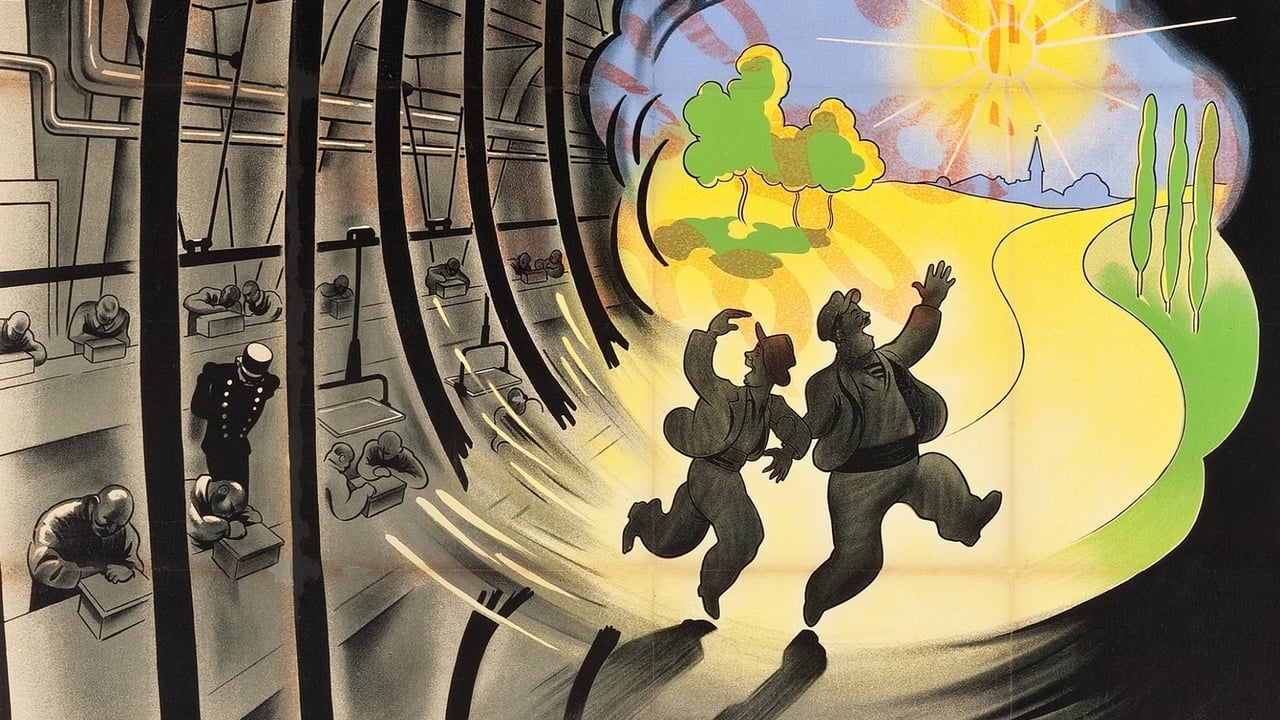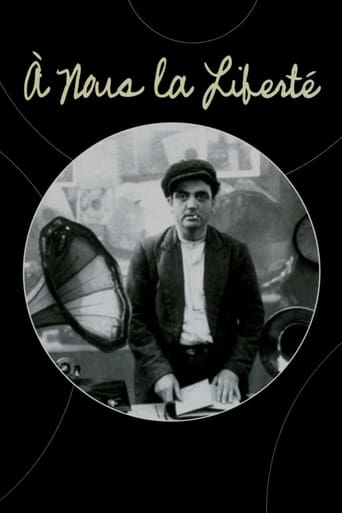



Brilliant and touching
The film's masterful storytelling did its job. The message was clear. No need to overdo.
View MoreIt’s fine. It's literally the definition of a fine movie. You’ve seen it before, you know every beat and outcome before the characters even do. Only question is how much escapism you’re looking for.
View MoreGreat movie. Not sure what people expected but I found it highly entertaining.
View MoreRené Clair's playful machine-age satire owes a large debt to Charlie Chaplin, who later returned the honor by borrowing extensively from Clair's innovative early sound comedy for his own late, great silent feature 'Modern Times'. But Clair went one step further in his original vision of a clockwork society, choreographing his comedy around recurring patterns, synchronized movements, and endless progressions of the type Buster Keaton loved to invent. The timing is precise, the humor is disarming, and Clair's message is simple: mechanical gadgets may be predictable, but human beings most certainly are not, and the awkward alliance between the two can be a fertile source of amusement.I was fortunate to see À Nous la Liberté on the big screen in the mid-1980s (at the Pacific Film Archive in Berkeley), alongside Fernand Leger's famous abstract short 'Ballet Mécanique' (1924): a patchwork of interesting and largely spontaneous visual ideas and juxtapositions.
View MoreUsually held up as a significant film due to its place between silence and talk, and as an early satire on the burden of the working class, this is certainly interesting. There is symbolism from beginning to end with workers lined up at the gates of factories contrasted with prisoners making little toy horses. One man escapes and becomes a great entrepreneur while his friend is left behind, yearning for freedom. The result is an odd couple. The men eventually work together, but the second man becomes a real liability. I guess we are supposed to see him as a sympathetic care, trying to get the young woman he pines for, but he comes off as a real pain in the butt, messing up just about everything he touches. I am going to say I appreciate the early cinematography and the way the story is told, but I can't say it was terribly engaging. The conclusion with its fishing utopia is just too silly for my tastes.
View MoreIt's taken me a while to get to this.In appraising an old movie, there is entertainment and there are the ideas preserved in it. This movie may entertain some but more than likely a modern viewer will find the entertainment aspect lacking, and the movie a bit slow-moving; much like Metropolis, Nosferatu, The Cabinet of Dr. Caligari. Silent movies just proceed at a different pace which I find to be on the irksome side. You'll be predicting the movies plot points before they arrive. Its reputation as a comedy bewilders me, or at least its reception as one (in the modern era) does. It's value as a product to move ideas is intact. The socialism guiding every frame makes its points clearly and explicitly. Really... you're not going to miss the point. And the movie adopts various structural mirroring devices that are on the hoary side.Time is not kind to certain projects. I found myself begging for the long middle portion to speed up or be over with quickly. I felt this was a very average quasi-silent movie that is in our hands today because the production design was a little more novel than most. We just love superficialities like that here in the modern world. (See Blade Runner and it's 387 special editions). I say quasi-silent because the sound appears in concentrated, intermittent segments.
View MoreThe contention that Charlie Chaplin ripped off Rene Clair's A NOUS LA LIBERTE may have merit (if not, we're talking about one of the greatest coincidences in the history of cinema)- but... When one considers the fact that Clair openly acknowledged Chaplin's influence on his own cinestyle, the point can almost be considered moot. (Certainly there are entire sequences- many of them silent- throughout A NOUS LA LIBERTE that echo Chaplin's style. Shockingly so.) At any rate, both Clair's film and Chaplin's "rip-off," MODERN TIMES, owe a debt to Fritz Lang's brilliant epic, METROPOLIS. (Osamu Tezuka, who would go on to be acknowledged as one of the seminal creators of contemporary manga and anime, would do his own manga version of METROPOLIS years later.) Regardless, Clair was a great filmmaker in his own right. UNDER THE ROOFS OF Paris, which literally begins and ends on the same note, is another Clair film worthy of note: the unprecedented use of sound alone makes this one a must-see for students of film. When it comes to the controversy of A NOUS LA LIBERTE versus MODERN TIMES, it's simply a case of six of one, half dozen of the other. They're both great films, by two of the greatest filmmakers to ever make films.
View More